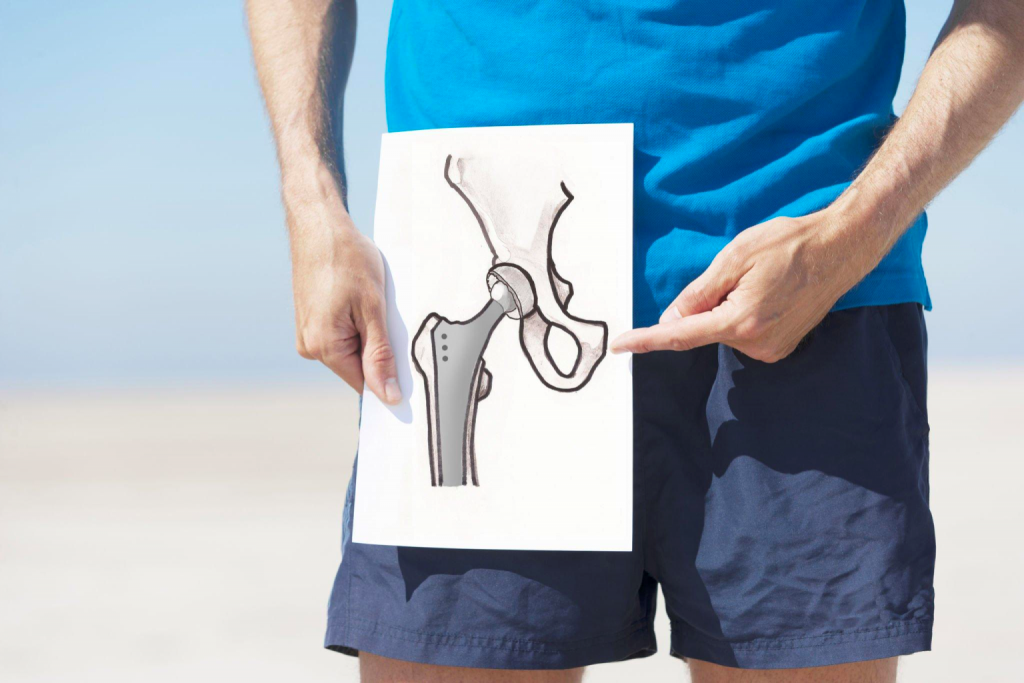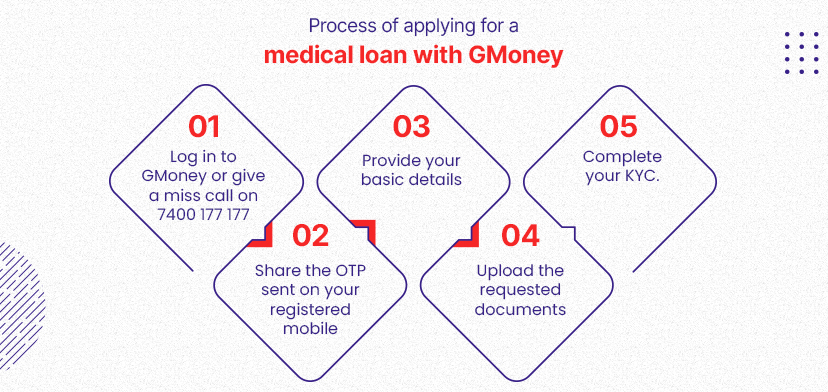Home » Hip replacement surgery in Pune: Cost, indications for surgery and risk factors

Considering hip replacement surgery can be a daunting task. It can be difficult to deal with the pain associated with your condition and not have anyone to turn to for answers. This blog can help you find the answers you need and guide you through the process of hip replacement surgery so that you can make an informed decision.
Chronic hip pain can be extremely frustrating. You might try lots of different treatments, but nothing seems to work. If this sounds familiar, you might need hip replacement surgery. This can be a big decision, but if other treatments haven’t worked and your pain is affecting your daily life, it might be the best option. In some cases, you might need total hip replacement surgery, which involves replacing the entire joint with artificial parts.

There are several reasons that can contribute to hip joint pain, including:
Many people suffer from hip joint pain, which can be alleviated by hip replacement surgery. This procedure is effective in reducing pain and enhancing the stability and connection of hip joint bones. Many individuals have reported a substantial decrease in pain following this surgery.
A hip replacement surgery is when a doctor replaces a damaged hip joint with an artificial one that has metal and plastic components. The hip joint is a crucial weight-bearing joint in the body and is made up of the acetabulum socket of the pelvic bone and the femur head. The artificial joint is designed to move just like a natural hip joint.
A doctor does the surgery while the patient is under general anaesthesia. After the surgery, the patient may need to stay in the hospital for a few days or weeks.
The purpose of a hip replacement surgery is to improve the patient’s quality of life by reducing pain and restoring mobility. This surgery usually leads to a significant reduction in pain and an improvement in the ability to perform daily activities such as walking, running, and ascending stairs. In addition, some patients may experience better stability, balance, and posture.

Many advantages that considerably enhance patients’ quality of life are provided by hip replacement surgery. After the operation, patients frequently say they feel more energised, independent, and self-sufficient. Also, their range of motion is increased, and their discomfort is decreased, which improves their standing and balance.
An additional advantage of having a hip replacement is increased mobility. Daily activities like walking, running, and climbing stairs become simpler for them since they can move more freely and comfortably. Before, it was tough to participate in sports like biking and swimming.
The pain and discomfort that the condition causes are also alleviated by hip replacement surgery. Less strain is placed on the muscles, tendons, and ligaments in the area by the new hip joint, which results in less stiffness and discomfort. Also, patients are able to move with assurance and ease thanks to the new joint’s improved stability.
Last but not least, a hip replacement procedure might increase a patient’s confidence. With a strong and durable joint, patients can now take part in daily activities and pursue hobbies they may have put off before surgery. A more fulfilling existence can result from this newfound confidence and adequate maintenance and care.

Hip replacement surgery is less expensive in India when compared to other countries; however, there is a range in cost depending on the city. For example, Pune is on the lower end of the cost spectrum while Mumbai is on the higher end. The cost for hip replacement surgery in Pune can range from Rs. 60,000 to Rs. 8,00,000.
Cost of the surgery in other metro cities of India
City
Price Range (Min-Max)
Ahmedabad
Rs. 7000 – Rs. 6,50,000
Bangalore
Rs. 55,000 – Rs. 7,00,000
Chandigarh
Rs. 3,00,000 – Rs. 5,00,000
Chennai
Rs. 90,000 – Rs. 5,00,000
Gurgaon
Rs. 30,000 – Rs. 5,00,000
Hyderabad
Rs. 70,000 – Rs. 8,00,000
Kolkata
Rs. 30,000 – Rs. 5,00,000
Mumbai
Rs. 47,000 – Rs. 8,00,000
New Delhi
Rs. 35,000 – Rs. 8,00,000
Noida
Rs. 70,000 – Rs. 3,00,000
Pune
Rs. 60,000 – Rs. 8,00,000
The cost of hip replacement surgery in India is usually between ₹1,50,000 and ₹2,50,000. This can be a difficult expense for patients to afford. In addition, there can be many hidden costs associated with post-operative care and rehabilitation.
Despite the high initial cost, many patients find that the long-term benefits of the surgery are worth the investment. GMoney offers no-cost EMI medical loans for hip replacement surgery, which may be helpful for those in need.

1. What is hip replacement surgery?
Hip replacement surgery is a medical procedure that involves replacing a damaged or worn hip joint with a prosthetic hip joint. This procedure is typically recommended for patients who have severe hip pain or stiffness that does not respond to other treatments.
2. What are the risks associated with hip replacement surgery?
While hip replacement surgery is generally safe when performed by a qualified and experienced surgeon, there are some risks to be aware of before deciding to undergo the procedure. Potential risks include infection, blood clots, dislocation, and nerve damage.
3. Is there a way to finance hip replacement surgery?
Yes. GMoney offers medical loans for hip replacement surgery that come with no-cost EMI and flexible repayment options, so you can pay without stressing about your budget.
4. What are the advantages of hip replacement surgery?
Hip replacement surgery can lead to improved mobility and quality of life for patients. It can also help relieve chronic pain and stiffness in the hip joint.
5. How much time does it take to recover after hip replacement surgery?
The recovery period for hip replacement surgery can vary, depending on the individual’s age, overall health, and the type of procedure performed. Generally, most patients can expect to return to their normal activities within two to three months after the surgery.
To sum up, hip replacement surgery can offer many benefits to those dealing with hip pain and mobility issues. The surgery can provide relief from pain, enhanced mobility, and an overall improved quality of life. However, it is important to consider the drawbacks of the surgery, such as the recovery period and potential complications. Additionally, delaying the surgery can come with its own set of risks and consequences, so it is important to weigh all options before making a decision.
Disclaimer: THIS WEBSITE DOES NOT PROVIDE MEDICAL ADVICE.
Follow us
Reach us
Mumbai HO
GMoney Pvt. Ltd.
315, 215 Atrium,
Next to Courtyard by Marriott,,
A.K. Road, Andheri East,
Mumbai - 400093
Ph : +91 86570 00105, +91 72089 60444
Quick Links
Bengaluru
GMoney Technologies Pvt. Ltd.
Oyo Work Spaces, Umiya Emporium,
Opposite Forum Mall, Hosur Rd,
Koramangala, Bengaluru,
Karnataka 560029
Ph : +91 89717 34815
Delhi
GMoney Technologies Pvt. Ltd.
Berry Co Works, 1E/3,
Jhandewalan extension,
Next to jhandewalan metro station
gate no. 2 Barakhambha Road,
New Delhi, Delhi 110001
Ph : +91 97116 26832
Pune
GMoney Technologies Pvt. Ltd.
91 Spring Board, Sky Loft,
Creaticity Mall, Off, Airport Rd,
opposite Golf Course, Shastrinagar,
Yerawada, Pune,
Maharashtra 411006
Ph : +91 84250 28758
Chandigarh
GMoney Technologies Pvt. Ltd.
SCO no. 292,
First Floor, Sector 35D,
Chandigarh
Ph : +91 84279 82012
Jaipur
GMoney Pvt. Ltd.
CODESKK Civil Tower,121 122,
Pandit TN Mishra Marg,
Santhosh Nagar, Nirman Nagar,
Jaipur – 302019
Ahmedabad
GMoney Pvt. Ltd.
22nd Floor, B Block,
Westgate By True Value,
Nr. YMCA Club, SG Highway,
Ahmedabad – 380051
Hyderabad
GMoney Pvt. Ltd.
Dwaraka Pride,
Plot no. 4/1, Survey No. 64,
Huda Techno Enclave, Madhapur,
Hyderabad (Telangana) – 500081
Chennai
GMoney Pvt. Ltd.
DBS Business Center, 31A,
Cathedral Garden Rd, Badrikari, Tirumurthy Nagar, Nungambakkam, Chennai, Tamil
Nadu – 600 034
Mumbai HO
GMoney Pvt. Ltd.
315, 215 Atrium,
Next to Courtyard by Marriott,,
A.K. Road, Andheri East,
Mumbai - 400093
Ph : +91 86570 00105, +91 72089 60444
Bengaluru
GMoney Pvt. Ltd.
3rd floor, Ranka Junction,
AH45, Krishna Reddy Industrial Estate,
Dooravani Nagar,
Bengaluru Karnataka - 560016
Ph : +91 72089 60444
Pune
GMoney Pvt. Ltd.
91 Spring Board, Sky Loft,
Creaticity Mall, Airport Rd,
Opp. Golf Course, Shastrinagar,
Yerawada, Pune,
Maharashtra - 411006
Ph : +91 72089 60444
Delhi
GMoney Pvt. Ltd.
Berry Co Works, 1E/3,
Jhandewalan extension,
Gate no. 2 Barakhambha Road,
New Delhi, Delhi - 110001
Ph :
+91 72089 60444
Chandigarh
GMoney Pvt. Ltd.
SCO No. 292,
First Floor, Sector 35D,
Chandigarh - 160022
Ph : +91 72089 60444
Hyderabad
GMoney Pvt. Ltd.
Dwaraka Pride,
Plot no. 4/1, Survey No. 64,
Huda Techno Enclave, Madhapur,
Hyderabad (Telangana) - 500081
Jaipur
GMoney Pvt. Ltd.
CODESKK Civil Tower,121 122,
Pandit TN Mishra Marg,
Santhosh Nagar, Nirman Nagar,
Jaipur - 302019
Chennai
GMoney Pvt. Ltd.
DBS Business Center, 31A,
Cathedral Garden Rd, Badrikari,
Tirumurthy Nagar,Nungambakkam, Chennai,
Tamil
Nadu - 600 034
Pune | Mumbai | New Delhi | Kolkata | Chennai | Navi Mumbai| Bengaluru | Ahmedabad | Nagpur | Hyderabad | Jaipur | Lucknow | Bhopal | Bhubaneswar | Nashik | Indore | Ghaziabad | Kanpur | Amritsar | Vasai | Noida | Gurugram | Chandigarh | Ranchi | Cuttack | Thane | Kalyan | Jalandhar | Kolhapur | Visakhapatnam | Chakan| Greater Noida | Wagholi | Raipur | Panvel | Belgaum | Mohali | Bhiwandi | Talegaon | Coimbatore | Palghar | Mumbra | Sangli | Surat | Durgapur | Ludhiana | Kochi | Agra | Ahmednagar | Ajmer | Akola | Aurangabad | Baroda | Beed | Rewari | Patiala | Vellore | Ranjangaon | Nanded | Nellore | Panipat | Panjim | Madurai | Mysore | Mangalore | Korba | Mathura | Kalaburagi | Jalgaon | Kharar | Guwahati | Kollam | Jamshedpur | Gwalior | Saswad | Solapur | Varanasi | Salem | Sambalpur | Jodhpur | Hubli | Panchkula | Faridabad | Amravati | Ayodhya | Badlapur | Dehradun | Parbhani | Ujjain | Udaipur | Tiruchirappalli | Srinagar | Shimla | Secunderabad | Ratnagiri | Pandharpur | Ananthapuram | Buldhana | Hadapsar | Baramati | Chittoor | Darjeeling | Dhule | Fatehpur | Gandhinagar | Haridwar | Gorakhpur | Jhansi | Kanchipuram | Kartarpur | Kurukshetra | Pondicherry | Prayagraj | Bharuch | Bhusawal | Bathinda | Pathankot | Nandurbar | Niphad | Kolar | Ambala | Kota | Pendurthi | Jabalpur | Palwal | Bhilai | Bhiwani | Bilaspur | Patna | Rohtak | Phagwara | Malegaon | Vijayawada | Bikaner | Chiplun | Darbhanga | Roorkee | Bhor | Rajahmundry | Margao | Alwar | Dhanbad | Bulandshahr | Aluva | Mulshi | Davanagere | Kapurthala | Anantapur | Loni | Latur | Gondia | Chhindwara | Chandrapur | Dharmapuri-TN | Faridkot | Dharwad | Daund | Chaksu | Bareilly | Kakinada | Haldwani | Doddaballapur | Dindori-MH | Bagru | Kudus | Kozhikode | Gurdaspur | Bokaro | Berhampur | Batala | Barrackpore | Ramgarh | Meerut | Bassi | Dera Bassi | Howrah | Karjat Raigarh | Thiruvananthapuram | Bheemunipatnam | Ambegoan | Allahabad | Aligarh | Alappuzha | Tirupathi | Thoppumpady | Srikakulam | Siliguri | Rourkela | Mirzapur | Gadag | Bellary | Tumkur | Sonipat | Hoshangabad | Junnar | Jalna | Hisar | Karnal | Kottayam | Muzzafarnagar | Ramnagara | Thrissur | Bahadurgarh | Balasore | Baraut | Dhar | Ernakulam | Gadhinglaj | Chikodi | Vaniyambadi | Kamothe |